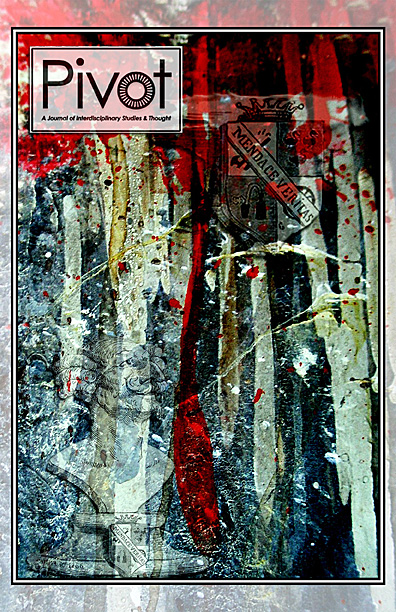Thackeray's Barry Lyndon as Professor of Imposture
DOI:
https://doi.org/10.25071/2369-7326.32155Abstract
Thackeray‘s eponymous, comedic antihero rightfully earned his reputation as one of the most notoriously unreliable narrators in English fiction, not least for his portrayal as a gentleman scoundrel and roving confidence man. Scholars have long assumed that Victorian readers found the highly mobile gambler with dozens of aliases both frightening and irredeemably bad. I wish to suggest that Barry‘s literary appeal as well as his commercial liability were rooted in Thackeray‘s decision to cast him as a professing philosopher in imposture and identity play.
This essay analyzes two scenes in Barry Lyndon (1844) to demonstrate Barry‘s swift education in the art of personal narrative manipulation and to describe a model for interpersonal literacy in which Barry both expressly and implicitly offers instruction. Though Barry claims to be educating readers in the finer points of professional gambling, he is actually delineating the rules for playing with one‘s identity, an endeavour far more universally interesting, and alarming, than the ostensible tutoring in how to circumvent the original readers‘ growing middle-class work ethic. Barry labours hard and constantly, but he is manufacturing personal narrative—something many Victorian readers may have wished was authentic, unique, and thus beyond the grimy reach of industrial production.
Barry‘s wins and losses in identity manipulation have little to do with The Luck of Barry Lyndon, the title under which the novel was originally published, and everything to do with Barry‘s increasing but perpetually inadequate grasp of the complex of skills that forms the modus operandi for successful impostors: interpersonal literacy, recursive scripting, and confidence networking. Tracing Barry‘s experiments in narrative propagation reveals both a discipline in which one can be educated and a generative process by which a subject inhabits a narrative that takes on a life of its own.
References
Bedingfield, Richard. “Recollections of Thackeray: Prologue.” Cassell’s Magazine 2 Sep. 1870: 12-14. Print.
Butler, Judith. Gender Trouble. New York: Routledge, 1990. Print.
de Certeau, Michael. The Practice of Everyday Life. Berkeley: U California P, 1988.
Derrida, Jacques. “Structure, Sign and Play in the Discourse of the Human Sciences.” Writing and Difference. Transl. Alan Bass. Chicago: U of Chicago P, 1980. 278-94. Print.
Foucault, Michel. Discipline and Punish: The Birth of the Prison. New York: Vintage, 1995. Print.
Franklin, Jeffrey. Serious Play: The Cultural Form of the Nineteenth-century Realist Novel. Philadelphia: U Penn P, 1999. Print. DOI: https://doi.org/10.9783/9781512803303
Goffman. Erving. The Goffman Reader. Eds. Charles Lemert and Ann Braneman. Malden, MA: Blackwell, 1997. Print.
Miller, D.A., The Novel and the Police. Berkeley: U California P, 1989.
McCarthey, Terrence. “Chronological Inconsistencies in Barry Lyndon.” English Language Notes 21.2 (1983): 29-37. Print.
Ray, Gordon. Thackeray: The Uses of Adversity. New York: McGraw Hill, 1955. Print.
Saintsbury, George. A Consideration of Thackeray. New York: Russell & Russell, 1931. Print.
Sanders, Andrew. “Introduction.” The Memoirs of Barry Lyndon, Esq. Ed. Andrew Sanders. Oxford: Oxford UP, 1999. Print.
Shillingsburg, Peter. Pegasus in Harness: Victorian Publishing and W.M. Thackeray. Charlottesville: UP Virginia, 1992. Print.
Smith, Adam. An Inquiry into the Wealth of Nations. Ed. Kathryn Sutherland. New York: Oxford UP, 2008. Print.
Stephan, Leslie. “Barry Lyndon.” Saturday Evening Review 27 Dec. 1856: 783-85. Print.
Thackeray, William Makepeace. The Memoirs of Barry Lyndon, Esq. Ed. Andrew Sanders. Oxford: Oxford UP, 1999. Print.
Trollope, Anthony. Thackeray. New York: Macmillen, 1879. Print.
Warhol, Robyn. Gendered Interventions: Narrative Discourse in the Victorian Novel. New Brunswick: Rutgers UP, 1989. Print.


